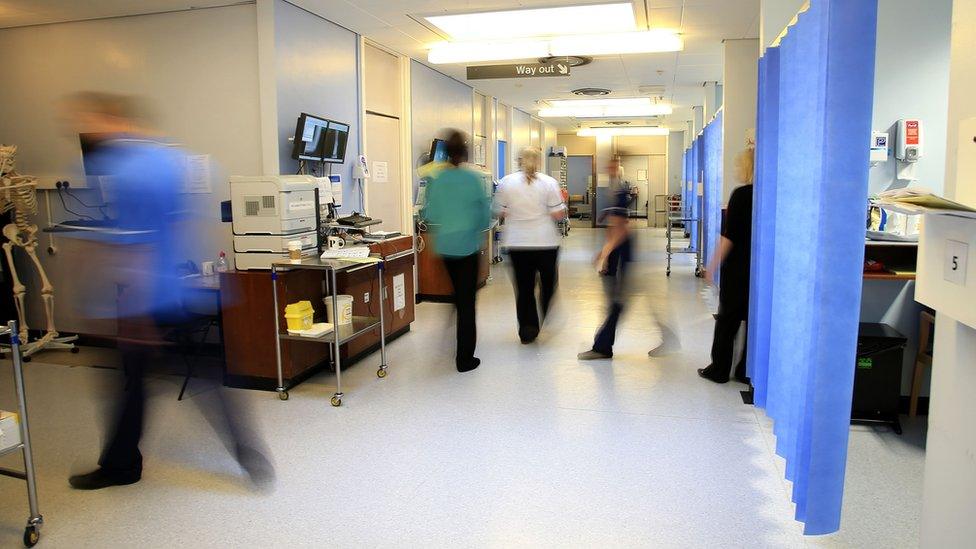Coronavirus: Planned ops in May fell by 80% in England
- Published

Planned operations in England fell by 80% in May compared with the same month in 2019, .
The number of people attending A&E was a third lower in June than in the same month last year.
But waiting lists for treatment also fell as fewer people are having key tests for cancer and heart disease.
A raft of stats published on Thursday by NHS England show how dramatically use of the health service has been changed by coronavirus.
Non-emergency surgery, including cancer and heart operations, fell from from 296,000 in May 2019 to 55,000 in May this year.
This is slightly up from the 41,000 planned operations that took place in April, but remains far below normal.
And there were about half as many procedures that didn't involve being admitted to a hospital bed in May 2020 - 506,000, compared with 1.1 million in May 2019.
Waiting lists shrank
As services have paused, the number of patients on a waiting list to start treatment has actually fallen -from 4.4 million in May 2019 to 3.8 million patients in May this year.
This had been expected, since fewer people have been going for tests which could indicate people need procedures - and is likely to shoot back up.
Total tests - including scans to look for tumours and tests of heart function - fell by almost a third, from 1.2 million in May 2019 to 870,000 May 2020.
Guidance to begin re-opening services for more non-urgent care was issued to trusts in mid-May.
The tranche of data released on Thursday also included figures on A&E attendances in June. These showed there were 1.4 million A&E attendances in June compared with 2.1 million in June 2019 (though this is slightly up from 1.26m in May).
This partly reflects there having been fewer accidents as people have stayed away from roads, sports and pubs. But it may also include people who stayed away from hospitals out of fear or because they didn't want to be a burden, despite needing urgent care.
An NHS spokesperson said: "Despite responding rapidly to the coronavirus pandemic and the need to ensure over 100,000 patients could receive hospital care, NHS staff also provided more than five million urgent tests, checks and treatment in a safe way during the peak of the virus.
"The overall waiting list has fallen by more than half a million since the onset of Covid, but as more patients come forward local health services continue work to expand services safely."
Follow Rachel